Student Blog
Diversity
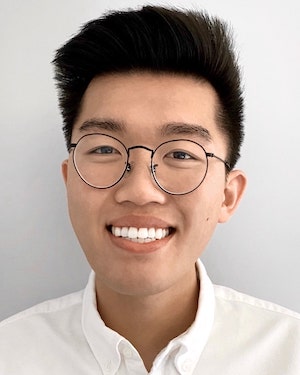
Humans of USC Chan Volume 2 ⟩
January 25, 2021, by Calvin
Diversity Getting Involved Videos What are OS/OT?
Did you know that you can major in occupational therapy as an undergraduate student at USC? The Chan Division currently offers an accelerated program, known as the Bachelor’s to Master’s Program, where undergraduate students can earn their master’s degree in occupational therapy with just one additional year. I believe that the BS-MA students have very unique experiences to share, especially as individuals who committed to the profession so early on.
So, I invited some Bachelor’s to Master’s students to come and talk about how they discovered occupational therapy! On top of that, we discussed topics related to their favorite experiences, extracurricular involvement, differences being in an accelerated program at USC, and advice for students who might be interested in the program! If you watch it through YouTube, the video is time-stamped with each topic in case you ever want to go back to a specific conversation.
I hope you find this video helpful and that these diverse perspectives give you more insight into what student life is like in the Bachelor’s to Master’s program! Welcome to the Humans of USC Chan!
⋯
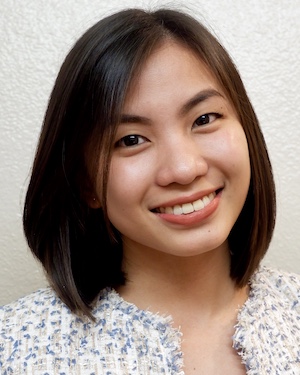
Winter Break Occupations ⟩
January 11, 2021, by Yna
Diversity International Videos
Happy 2021 everyone! I hope you all had a wonderful time during the holiday season and are feeling well-rested and ready to start this year anew. We are but a few days away from going back to school for the spring semester. Despite being in this extraordinary circumstance, it’s delightful to witness people finding unique ways to celebrate the season. I can say at least for myself that the break has been restful and rejuvenating, for I’ve had plenty of opportunities to catch up with closest family members as we stayed in and simply spent time with each other.
As all things must come to an end, it is now time to face reality—going back to school! I find it quite difficult to believe that this will already be my final semester before graduating. I know that once we step into the new term, we’re going to be too busy to even take note of the amount of time passing by — at least this was my experience during the last semester. But however daunting this may seem, it is also exciting to think about all the new experiences and learnings that I will be gaining with my amazing classmates and supportive professors as we all go through this common yet unique journey together. I try to remind myself to just enjoy the ride and keep in mind that everything’s going to be alright. Now, it’s time to turn any worry into productive preparation for all the exciting things in store for us this year!
⋯
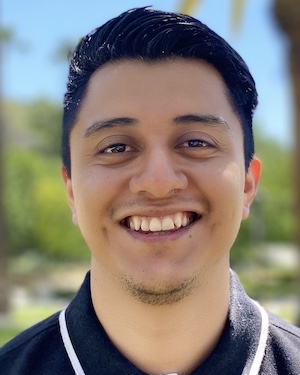
Joining a Growing Number of Latinx Occupational Therapists ⟩
January 5, 2021, by Daniel
Diversity Getting Involved
Recently the American Occupational Therapy Association (AOTA) published the 2019 Workforce and Salary Survey. Based on 15,596 responses (most being AOTA members), in 2018 race/ethnicity of occupational therapists were as follows: 3.6% Hispanic/Latinx, 2.6% African American/Black, 6.3% Asian/Pacific Islander, 0.2% American Indian/Alaskan Native, 1.7% Multiethnic, 1.6% Preferred not to Answer, with the majority of occupational therapists remaining at 84.0% Caucasian/White. Keep in mind that these numbers are based on people who responded to the survey. The United States (U.S.) Bureau of Labor Statistics also compiled data in 2019 from employed occupational therapists that were as follows: White, 75.7%; Black or African American, 10.2%; Asian, 12.4%, and Hispanic or Latino, 10.2%.
The truth is these statistics are not where I or many people would want them to be and they make me feel fortunate to be a part of this small, but growing percentage of Latinx occupational therapists. It is also a reminder that I must continue to push the narrative. In addition to the numbers shared above, I also represent an unknown statistic of undocumented occupational therapists in the United States. The closest statistic I found while doing my research was from the Migration Policy Institute (MPI) tabulation data from the U.S. Census Bureau 2018 American Community Survey, which found that 3.6% of “therapists” in the U.S. are “foreign-born workers”. Yet, there is no true number I can refer to as this number gathers occupational therapists, physical therapists, respiratory therapists, and speech-language pathologists under the term “therapists”, and the term “foreign-born workers” can include undocumented people, undocumented people with Deferred Action for Childhood Arrivals (DACA) status, and a variety of visas. Furthermore, disclosing immigration status is a sensitive topic to disclose on surveys or any type of data collection.
So why is this important you may be wondering? Well, as I have disclosed in a previous financial aid video, I am currently undocumented with DACA status. My entire life has been full of firsts, first person in my family to go to college, first to go to graduate school, and the list goes on. During the process and since officially becoming a licensed OT in California, the firsts just keep coming and as we begin 2021, I foresee many more happening this year. At some point this year I will be completing my Doctorate in Occupational Therapy (OTD) degree and applying for jobs. If someone would have told me this back when I was in high school, I would have not believed it. Back then I didn’t think it was possible to even go to college, much less that one day I would be at USC working on my doctorate degree. This is why the numbers above matter because to have access to even one professional that looks like you or that may come from a similar background can make a huge difference in someone’s decision to pursue a specific program and/or career as it did for me. Furthermore, having representation in the healthcare field for clients from diverse backgrounds is vital to providing the best care possible and better understand client beliefs and values.
This year my life is going to change, and it is scary/exciting as this will be one of the biggest firsts I’ve ever had to experience. The last two years at USC, I’ve had the opportunity to have mentors in the OT profession such as Dr. Celso Delgado, Dr. Jesus Diaz, Dr. Gabby Granados, Dr. Beth Pyatak, and Dr. Arameh Anvarizadeh, to name a few, who have supported me in ways that have made it possible for an undocumented student from Van Nuys to join this group of occupational therapists working to increase representation in our profession and make our communities’ voices heard. And I also want to give a shoutout to some of my classmates, Katie Bui, Marilyn Thompson, and Janis Yue, for also doing the work to increase diversity in OT these last few years and also working on their OTD.
For 2021, I have made two commitments. The first commitment is to become even more engaged in sharing my story and be a mentor to more OT students, applicants, and those interested in this field. The second commitment is to do more community work with organizations across the country such as Coalition of Occupational Therapy Advocates for Diversity (COTAD). These are my initial commitments I have planned this year in order to continue increasing those percentages shared earlier and help create an even more diverse, inclusive, and equitable OT profession. Change is slow but it’s up to us to make that change. If you are a potential applicant, someone interested in OT, or current student feel free to reach out to me! (.(JavaScript must be enabled to view this email address) or 818-571-8222). Let’s network and have these conversations!
⋯
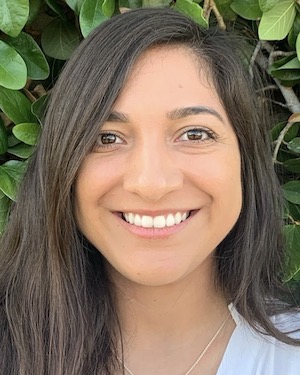
Working with the Community ⟩
December 21, 2020, by Liz
Diversity Getting Involved
In one of my previous blog posts I shared a little bit about the community program that my colleague, and one of my dearest friends, Stephanie and I are leading together. The program is called Vivir Con Diabetes, and was initially developed by another occupational therapy student, David, as a part of the Albert Schweitzer Fellowship. In efforts of continuing the program, he mentored our very own Daniel Padilla, who then continued running the sessions the following year in collaboration with his colleague, Ceci. As you may all know, Daniel is now an OTD student and taking on other things as he works towards becoming Dr. Padilla. His colleague Ceci is also working on obtaining her OTD and is busy as she completes her residency at CHLA’s UCEDD. So now this year, Stephanie and I are running the program’s sessions.
To give you all more background, Vivir Con Diabetes is a program designed to support the Spanish-speaking community of Boyle Heights as they strive to make lifestyle changes in order to improve their diabetes management. Our goal is to implement culturally sensitive interventions as we support them in achieving their goal of better managing their diabetes. Our program site is the LAC+USC Wellness Center, which our participants are very familiar with because they utilize some of their other resources. I get a lot of questions from prospective students like “What kind of work do you get to do directly with the community?” “What are other ways to stay involved besides student organizations on campus?” “What kind of work do you directly get to do with the Latinx community?” Well, this is one of those ways in which I stay connected with my community all while using an OT lens.
Normally these sessions are held in person, but given the current situation we have been hosting them online. There are three sessions that take place Saturday mornings and are each 45 minutes long. It sounds like a long morning, but they really fly by! As we were discussing what we would be covering during the sessions and how they would be structured we had a few things to think about: would everyone that was interested in joining our classes have access to the internet? A computer? A cell phone? We really got to think about how much of an impact COVID-19 has had on our community, especially those who would come in-person to the Wellness Center with the goal of learning more about how to be more directly involved in their own health and care. Most of our participants tune in using their cell phones. Because Stephanie and I log in using our laptops, we had to learn a little more about how to instruct and guide our participants to unmute/turn their cameras on/off on their phones.
Stephanie and I touch on different topics every week and make sure that we relate them back to our participants’ diabetes management. We talk about things like:
- Sleep hygiene
- Chronic pain
- Stress management
- Physical activity — two weeks ago we did Zumba for 20 minutes, which was a hit!
- Communicating with one’s provider
- Mental health
These are just a few of the topics we cover, and as I mentioned before we always tie the topic back to diabetes management. For example, how does the stress created by family members and your provider affect your ability to manage your diabetes? How does the pressure of keeping your A1c levels low affect how you feel about yourself? How does it affect your relationships? Because our participants are Spanish-speaking and there’s already a low number of Latinx providers that they can relate to, our participants really love to share and talk to a group of people that understands — people that they can relate to.
I should mention that Stephanie and I aren’t just creating these lessons off the top of our heads! We get feedback from Dr. Diaz on our session outlines every week before introducing any content to our participants. Which brings me to my next point — mentorship. Aside from being able to work with the community, participating in this program has provided me with some great mentorship from Dr. Diaz. He continuously supports Stephanie and I by meeting with us on a weekly basis to go over our session outlines, any challenges we faced at our sessions, and also shares a ton of resources with us!
All in all it’s been such a great experience to be a part of this program. It’s something that I wish would have been available to help my grandmother with her diabetes management, and something that I think really makes a huge difference for our community in general. Speaking from my grandmother’s experience, she didn’t quite understand what it meant to have diabetes, didn’t know that there were so many lifestyle changes that could have helped her manage it, and also didn’t really feel comfortable asking her provider questions because she didn’t speak English. So, I am really passionate about supporting my community in any way possible.
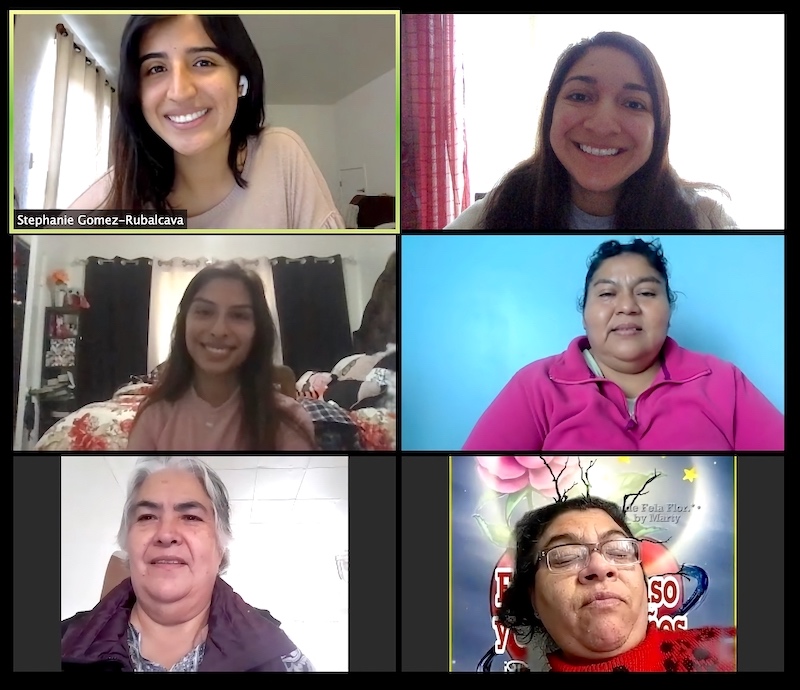
This past week was our last week of sessions for the semester. Here we are with some of our lovely participants from the 9 AM session! This photo was shared with participants’ permission.
I hope this was helpful for learning more about other ways in which you can stay involved and make a difference in the community. Please feel free to reach out to me if you have any questions about the program or about the Albert Schweitzer Fellowship! I would be happy to walk you through that application if you’re interested in applying for the following year. Fight on and happy holidays!
⋯
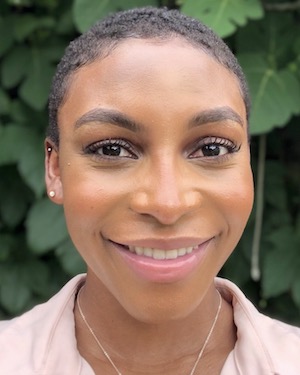
Being “First-Gen” ⟩
November 9, 2020, by Lamoni
Admissions Diversity First-Gen
This week is USC’s “First Generation Student Week.” USC defines a first-generation student as someone whose parents do not have four-year college degrees. At USC, roughly 20% of the students are considered “first-gen” and that includes me! Because this week is about highlighting first-generation students, I want to talk about what this experience (being the first person in my household to go to college) has been like for me. If I were to sum it up in a few words, I would say “challenging but rewarding.” I know how cliché and overused that phrase is, but it is true.
My mother was still in high school when she had me and though her and my dad regularly tell me how much joy I brought to their lives, they acknowledge the multiple challenges that come with being a young parent — one being completing higher education. Since I could remember, education, getting good grades, and going to college has been ingrained in my upbringing. After school, when my friends would play outside, I had to read “hooked on phonics” books first. Honestly, growing up in New Orleans with debilitating humidity, I was happy to stay indoors to read. My parents pushed education because they wanted me to have experiences that they did not. They instilled a hunger for learning because they figured it would keep me on the “right track.”
All my life, I strived for As. It started with getting incentives by the end of the week (a stop at Toys R’ US or extra money in my allowance) but then it was more long term — I wanted to get into a “good college” and make my family proud.
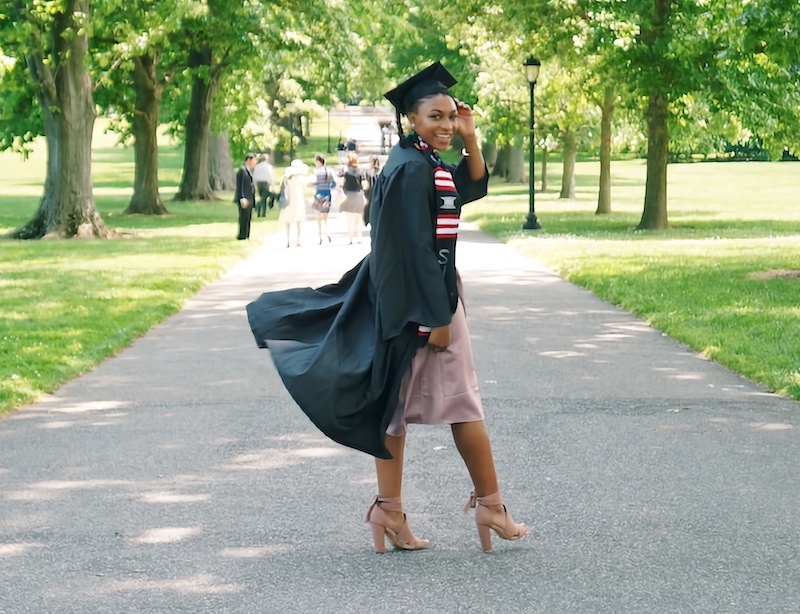
Photo of me in my cap and gown after graduating from college
Before college, everything felt like a straight path. School had always been “easy.” I never had to think about financing my education or having a place to live alongside completing readings, meeting deadlines, studying for tests. What was expected of me had completely shifted. On top of that, I went to school out of state and had absolutely no family around me. I remember a couple of times when I would cry on the phone to my mom because I felt overwhelmed. The most difficult part was reaching out to my parents and them not being able to help me. As a child and sometimes as a teenager, your parents are your superheroes. In the past, I could reach out to them for anything and together, we could come up with a solution. But now, I had to figure out everything on my own. From difficulties in class, to being a student worker all the way to handling east coast winters. They had no answers. For the first time in life, I could only rely on myself. As someone that takes a while to open up to people and someone that does not like asking for help, there were moments when I truly struggled.
During those moments of confusion and exhaustion, what kept me determined was my family — specifically, my siblings. I did not know what I was doing but I was going to figure it out — for them. Because, then, they would know that it was possible. Though I always had what I needed (food, water, shelter), I was raised in a low socioeconomic class. I, and the rest of my neighborhood, grew up on food stamps. Though my parents sheltered me as much as they could, I saw a lot of violence growing up, I saw substance abuse, and I saw family members taken away to jail. I saw what happens when people are not exposed to better opportunities or lack proper support to obtain those opportunities. I did not want my loved ones to be in that position. My parents could talk about how college was the right route to go, but they could not show me. I could show my brothers and sister and I could make my parents proud along the way. This was an opportunity to pave the way.
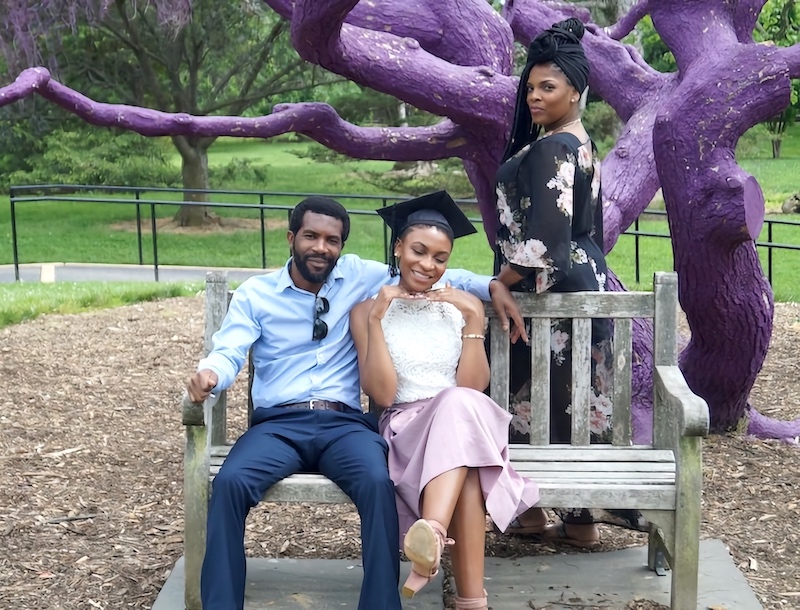
Picture of me and my parents after my college graduation
Because I am the first to get my bachelor’s degree, I will also be the first to get my master’s and later, the first to get my doctorate. While I am immensely proud of myself, I am not the only person that I do it for. As mentioned, I do it for my family. But, I also do it for other first-generation students. It is very difficult to go through such an extreme transition without guidance from your guardians. People discuss college as something that everyone must do — like it is some sort of “no-brainer” but they do not talk about how hard it is, and the resources to get through it is not readily available.
I love that there is a First-Generation Student Week because it acknowledges the challenges that first-gen students experience, congratulates us on our triumphs and provides resources so that we can continue moving forward. To all of the first-generation students, I am so proud of you. You have accomplished so much and you will continue to accomplish so much more.
⋯





